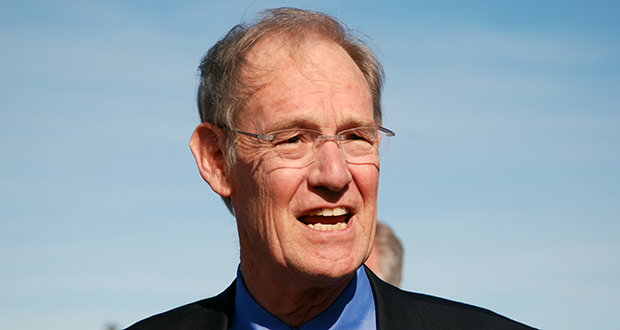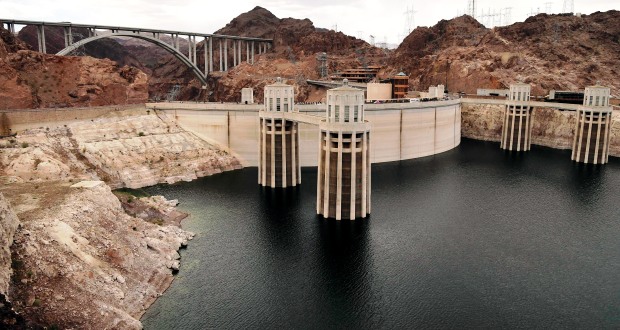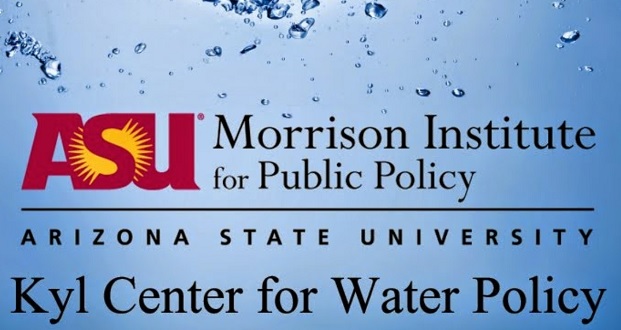Water policy remake stirs fight unlike others in state history
With Republican Gov. Doug Ducey convening water giants into meetings this summer, it’s become all the more apparent that major water players in Arizona, namely the state’s water department and its canal system, the Central Arizona Project, are at odds.
Agencies at odds over deal to send AZ water to California during drought
The Central Arizona Project tried to strike a deal to sell water to California for $18 million during the 2015 drought, which the state claims underscores the need for reforms to the water delivery system’s operations.
Conservation district wary of governor’s proposals on water
Arizona water bigwigs are meeting with the governor’s staff in an attempt to unify the state’s voice on water issues and come up with new ideas to conserve and manage water.
Terry Goddard accuses ADWR of ‘sneak attack’ blindsiding CAP
Former Attorney General Terry Goddard accused attorneys for Arizona’s water department of ethical lapses and of blindsiding the Central Arizona Project over their filing of a legal brief in an employment lawsuit involving the water district.
Ambiguity, confusion will reign if others assume mantle of authority over water issues from ADWR
What might seem to be an obscure lawsuit in federal court has potentially damaging consequences for water management in Arizona. The case involves the Central Arizona Water Conservation District, which... […]
ADWR says Central Arizona Project is overstating its role in water issues
An employment lawsuit is pitting two of the state’s largest actors on water issues against each other, and some say its outcome could complicate Arizona’s efforts to manage its water and prepare for drought.
Shortage avoided in 2017 due to collaborative conservation efforts
This week the U.S. Bureau of Reclamation released the news that there will not be a shortage on the Colorado River in 2017. This positive declaration can be attributed to water left behind in Lake Mead by CAP and its partners. However, Reclamation’s projection shows that without additional conservation actions, 2018 could be the first year of shortage on the Colorado River.
Collaborating to protect Lake Mead
We avoided shortage in 2016 due to our collective efforts to conserve water in Lake Mead and a fortuitous boost from Mother Nature’s precipitation--the so-called “Miracle May." However, the drought continues.
Ted Cooke: Mastering Arizona’s rarified art of water policy
At a critical time for water in the West, Ted Cooke said the Central Arizona Project is prepared to look at innovative ways to manage the scarce resource.
Wheeling, recovering and exchanging water will help secure our future
The Central Arizona Project is one of the largest water projects in the country, delivering nearly 60 percent of Arizona’s share of Colorado River water to cities, farms, industries and Native American tribes in central and southern Arizona.
Drought not the only reason for declining Lake Mead water levels
In our interactions with customers, stakeholders and the general public, Central Arizona Project representatives have noted that most people think the long-term drought is the reason for the declining water levels in Lake Mead. They're only partly right.
New Kyl center at ASU steps in to resolve water rights conflicts
The Kyl Center for Water Policy opened last November at Arizona State University’s Morrison Institute for Public Policy. Since Sarah Porter was hired as director in January, she and her team have set out to resolve the long-standing issue of determining the nature, extent and relative priority of water rights in Arizona. The process is known as general stream adjudication.












































